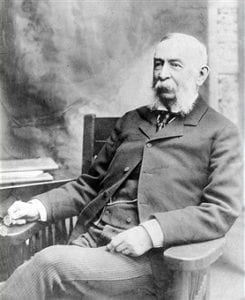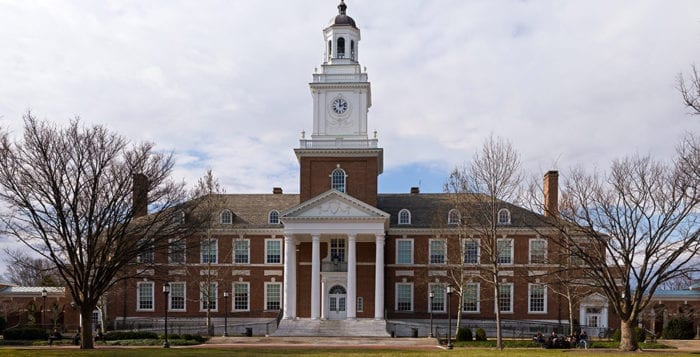By Elof Axel Carlson

If I had to praise a virtually unknown person as having had the greatest impact on our lives, I would choose Daniel Coit Gilman (1831–1908). Gilman attended Yale University and majored in geography. He became an administrator and founded the Sheffield School of Science at Yale, became the president of the University of California and in 1876 became the first president of Johns Hopkins University. He also helped set up the Carnegie Institution for Science in Washington, D.C.
In 1875 when he was asked to be president of Johns Hopkins University, he embarked on a tour of Europe. He liked the German university emphasis on scholarly research, the ideas of Thomas Huxley on liberal education, and came back with several European scholars who agreed to teach at Johns Hopkins, which opened its program in 1876.
Gilman started his university with a graduate school, then added an undergraduate program and eventually a medical school. He felt the German model was flawed by giving too much power to a single professor in a department who chose subordinates to teach or assist in research. Instead Gilman created departments with several professors committed to scholarship so they could stimulate their research and mentor graduate students who benefited from the multiple outlooks of the department.
By 1910 the success of the Johns Hopkins graduate program shifted the flow of scholars going from the United States to Germany, and after World War I the flow of scholars moved westward to American graduate schools. Gilman’s ideas led to the overwhelming success in Americans winning Nobel Prizes especially in physics, chemistry and the life sciences. It also flooded industries, hospitals and agencies with talented people applying their skills and creativity to their work.
I wish every science teacher would read T. H. Huxley’s “A Liberal Education and Where to Find It” and “On a Piece of Chalk.” They were published about 1868. The first essay shows how Huxley approached education as a way to connect the sciences, art and humanities, shifting knowledge away from an exclusive focus on Greek and Roman civilization as it was then in British schools and toward our connection to the universe in which we live.

The second is an example of good teaching. When I first read his essay when I was about 19 or 20, I could see him in my mind lecturing to the public and holding a piece of chalk in his hand and describing some shavings of it under the microscope revealing the miniature snail-like skeletons of plankton that dribbled down to build the chalk cliffs of Dover. I wanted to be like Huxley, creating lectures that would send shivers of surprise and delight at new knowledge that touched students’ lives.
I singled out Gilman as an educator who changed how knowledge can be learned and transmitted. Our Nobel Prizes and the esteem of rewards are showered on those who make wonderful contributions to knowledge. They are rarely given to founders of institutions that make new ways of learning possible. Both are necessary in our lives.
If I had to single out the one scientist who made the greatest contribution to humanity, I would give that honor to Louis Pasteur for introducing the germ theory of contagious diseases. His use of the microscope to investigate the spoilage of wines turning to vinegar showed that small round yeast cells were replaced by smaller rod-shaped bacteria. His experiments demonstrated numerous infectious diseases as stemming from specific bacteria. It led to vaccinations, public health programs, pasteurization of the milk children drink and the reduction of infant mortality, allowing mean life expectancy to rise from about 45 years at birth to about 80 years today.
New knowledge and inquisitive minds are what make civilization possible.
Elof Axel Carlson is a distinguished teaching professor emeritus in the Department of Biochemistry and Cell Biology at Stony Brook University.





